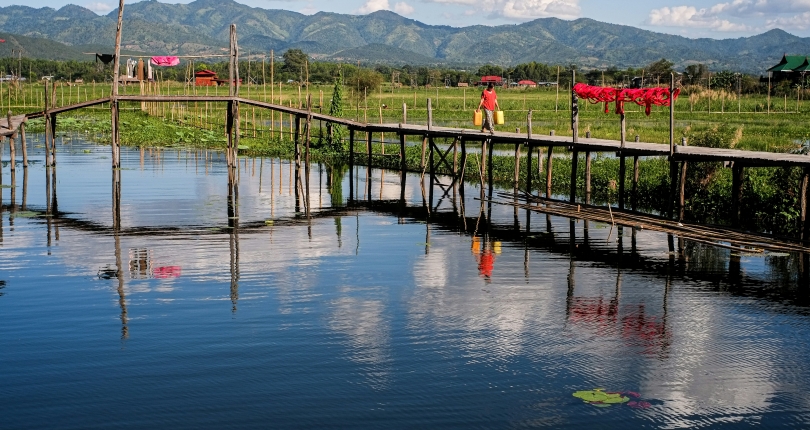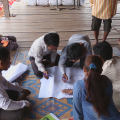Podcast – Communicating your research to influence policymaking in the Mekong Region
Our SYP podcast episode explores how young and early-career researchers can step up their game to be more effective in communicating research to influence policymaking in the Mekong Region.
In this 2nd episode of the SYP podcast series, we invited one of the young Mekong researchers from China to share her experiences and insights about communicating and engaging with policy.
Ms. Bin Liang, a senior Environmental, Social, and Governance (ESG) consultant at the China General Certification Center, has over five years of experience in the development field, especially in environment, energy, and corporate sustainability. She has contributed to the SUMERNET Young Professionals (SYP) work, strengthening engagement with youth in China and the region.
She discussed her experiences working with policymakers and policy influencers such as government agencies, UN agencies, and international organizations to drive tangible policy changes.
One of her significant challenges has been the complex nature of policymaking itself. To address this challenge, she encouraged young researchers to invest time in familiarizing themselves with the policymaking environment.
“Understanding the intricacies of policy development, the priorities of policymakers, and the political dynamics at play can be daunting. Investing time learning about the policy environment is essential to navigate this landscape effectively. This includes identifying key stakeholders, understanding the legislative process, and staying informed about current policy debates relevant to one's research area.”
Bin stressed the critical role of building strong research skills and an accurate understanding of problems so researchers can effectively engage in policy dialogue and make constructive policy recommendations.
She also emphasized the significance of “networking and storytelling skills” while communicating complex scientific studies to various audiences.
If you want others to understand and value your research, you must make the information appealing and understandable. Human beings naturally enjoy stories, including policymakers. A strong storytelling ability can effectively impress them, provoke their thoughts, and draw attention to critical social phenomena.
She said that young professionals need to take up opportunities such as attending forums and dialogue to get more exposure to multiple perspectives and viewpoints.
For example, the Learning Forum organized by SUMERNET last week was a good demonstration because it included government officials, young professionals, NGO representatives, and many stakeholders. Such gatherings are invaluable because they allow us to hear different voices and understand the varied interests and needs. These kinds of engagement help us form well-rounded policy suggestions considering multiple viewpoints.
She concluded:
Be persistent, stay curious, and be bold and voice your insights, even if it feels like no one is listening at first. Our dedication and passion will eventually make a difference and contribute to a more just and sustainable Mekong Region.
The SUMERNET "Research 4 All" series includes SYP podcast miniseries.
SYP miniseries episode 2 host: Khaing Su Lwin
Sound editing: Variya Plungwatana
Series producers: Rajesh Daniel and Variya Plungwatana
Download the transcript using the link below.
Listen to this episode on available channels:
Learn more about SUMERNET Young Professionals (SYP) here.
Info
This story is part of the following project
SUMERNET 4 All: Engaging with water insecurity in the Mekong Region
Topic
Country
Related people
You might be interested in
-
SUMERNET Vision Guide introducing the new phase "SUMERNET 4 All"
The new, revised "Vision Guide" for SUMERNET is now available. This vision guide presents an overview of SUMERNET - its origins and governance structure, background to the network, aims, key research areas, engagement with policy, and outreach products
![SUMERNET Vision Guide introducing the new phase "SUMERNET 4 All"]()
-
SUMERNET 4 All Call for Proposals on Joint Action
SUMERNET 4 All (S4A) provides financial support and technical assistance to consortia of researchers and boundary partners from the Mekong Region
![SUMERNET 4 All Call for Proposals on Joint Action]()
-
SUMERNET launches redesigned website to provide a fresh visual look and direction
SUMERNET is proud to announce the launch of our redesigned website to coincide with our new phase of work on addressing water insecurity in the Mekong Region.
![SUMERNET launches redesigned website to provide a fresh visual look and direction]()
 By
By 




 Read more about SUMERNET
Read more about SUMERNET
